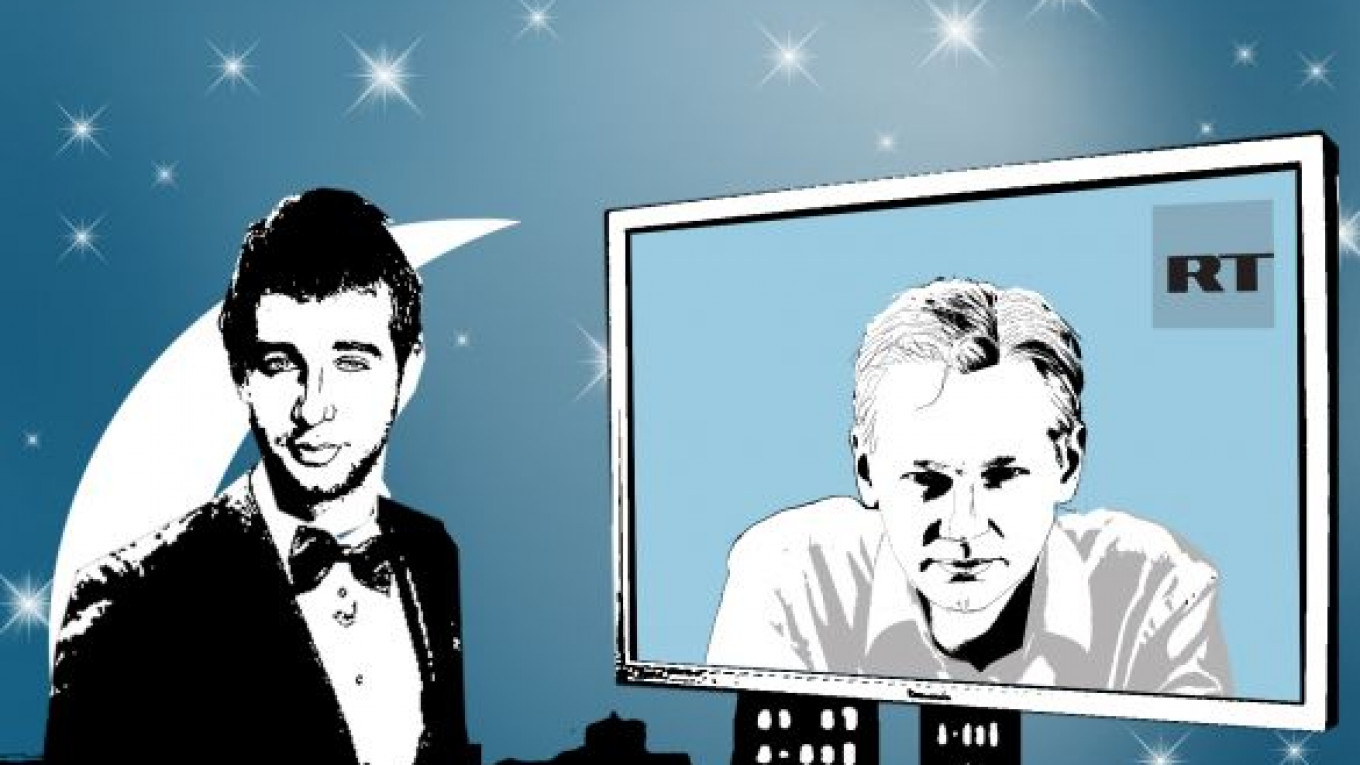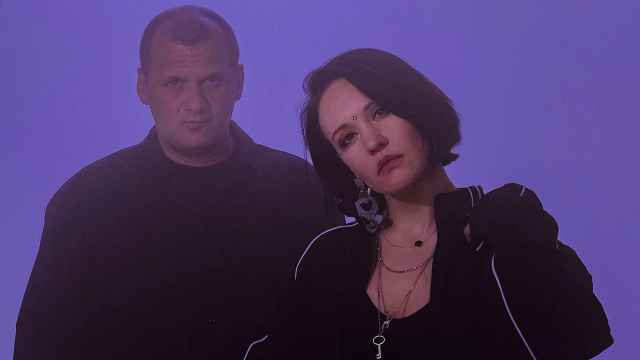This week, Channel One’s star presenter Ivan Urgant got his own talk show, “Evening Urgant, “ which is a direct imitation of the American late-night talk show format, with its jokes about the day’s news along with famous guests and live music.
The start of the first show had a joke about a nervous Urgant asking for a blessing from channel chief Konstantin Ernst, who, love him or hate him, has made real efforts to try riskier formats and produce television that at least gives a nod to what’s going on in the West.
It was a pretty bold move on Channel One’s part, since Russian television barely has talk shows or topical jokes about the news or even live music. And Urgant is used to hosting lighter shows, from his start on MTV to celebrity talent shows and working in a team of comedians on the closest to edgy that Channel One gets, “ProjectorParisHilton,” where some of the jokes are about fluffier news stories. He’s great at entertaining the crowds and reacting quickly to keep a show going, although he’s far from open about his real thoughts on anything, usually giving only comedic answers in interviews.
This month’s Russian GQ magazine listed him as the 23rd most influential person on Russian television (out of 30), but included a damning anonymous comment from someone at Ostankino television center saying “What can you say bad about Vanya? Nothing, except that he doesn’t have a heart. That’s why he’ll never be a good interviewer, by the way. He isn’t interested in the person he’s talking to.”
It’s the early days for a show like this, and the first episodes showed a lot of nerves, with Urgant lacking his usual comfortable knack of talking to an audience. There were some sketches that just fell flat, such as an elaborate joke about inviting on the actor Sergei Bezrukov for an in-depth interview and then asking him just one question: Did he play singer Vladimir Vysotsky under all the prosthetic makeup in “Vysotsky. Thank You for Being Alive,” a docu-drama film that did not credit the main role. Yes, he did.
At least the show looks glossy and right. Urgant has a new coiffed haircut and a bow tie, and he sits in front of a backdrop with Novodevichy Convent and the towers of Moskva-City. Hopefully the backdrop isn’t live, so as to avoid any sight of flames shooting out of the top. He even has a coffee cup with the name of the show.
But the political jokes were far too soft, hitting familiar targets such as bureaucrats slaving away in Italian pig farms on their holidays. And it’s not even a question of political stance. Surely, a pro-Kremlin channel should come up with a more cynical joke about hunger striker Oleg Shein than that it was hard for him to talk to Central Elections Commission chief Vladimir Churov because his beard smelled of Easter kulich. After all, I heard Vladimir Putin had them in the aisles of the Duma last week.
Then again, free speech, Kremlin-style, doesn’t necessarily make for very entertaining television. This week, breaths were bated for the first episode of WikiLeaks founder Julian Assange’s talk show “The World Tomorrow,” a title I cannot see without thinking of “The Day Today,” on RT. The channel warned us that the first guest would be an outrageous choice, likely to offend. But in the event, while it was theoretically shocking to see the leader of Hezbollah holding forth via video link, in fact, it was rather dull. As he explained why everything is America’s fault, I found my attention straying to Assange’s choice to wear cuff links on a crumpled shirt and his surprisingly chintzy taste in curtains.
A Message from The Moscow Times:
Dear readers,
We are facing unprecedented challenges. Russia's Prosecutor General's Office has designated The Moscow Times as an "undesirable" organization, criminalizing our work and putting our staff at risk of prosecution. This follows our earlier unjust labeling as a "foreign agent."
These actions are direct attempts to silence independent journalism in Russia. The authorities claim our work "discredits the decisions of the Russian leadership." We see things differently: we strive to provide accurate, unbiased reporting on Russia.
We, the journalists of The Moscow Times, refuse to be silenced. But to continue our work, we need your help.
Your support, no matter how small, makes a world of difference. If you can, please support us monthly starting from just $2. It's quick to set up, and every contribution makes a significant impact.
By supporting The Moscow Times, you're defending open, independent journalism in the face of repression. Thank you for standing with us.
Remind me later.






